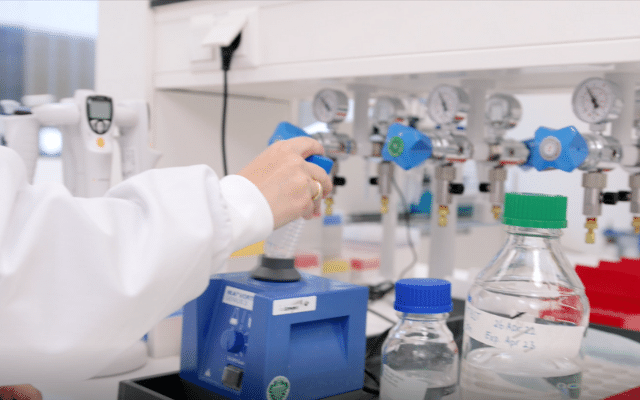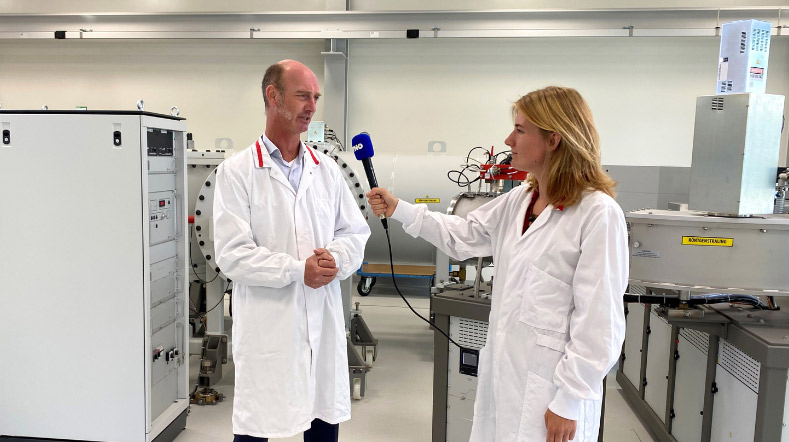Aiming for fast accurate preclinical and clinical trials
Pharma companies want it. Regulators want it. Patients certainly want it: faster, more accurate, less expensive drug development. But with all the complexity that drug development entails, how can we accelerate the process? By eliminating some of the bottlenecks that delay the critical path. TNO has developed a range of tools, technology and data that enables pharma companies to achieve their objectives more swiftly and successfully than ever before.
Three challenges in preclinical and clinical trials
Insight for the industry
Successful drug development is a lengthy, expensive and complicated process. What makes TNO the ideal partner to accelerate preclinical and clinical research? Our understanding of those complexities and our technologies, which address them.
At TNO, we innovate for the benefit of the pharmaceutical and biotech industry, for society and for patients. Our preclinical models and clinical platforms have proven value, and help drug companies reach key phases more swiftly and confidently.
TNO’s translational models excel in preclinical research


TNO helps accelerate drug development through insight
TNO proves method for effective pediatric drug development

Translational preclinical models with trustworthy, meaningful results
In preclinical development stages, project leads are under pressure to identify novel targets and candidate compounds. To obtain meaningful results, early in vitro and in vivo studies should employ robust models that recapitulate critical human disease processes. TNO’s proven platforms boost preclinical research and offer insight into the efficacy, pharmacokinetics and safety of candidate compounds. We combine robust biological models with high-end analytics for specific and sensitive readouts.
Our extensive tissue biobank and database enables us to make head-to-head comparisons of preclinical testing results with pathways in human tissue or specific cells. This ensures a higher rate of translatability between early preclinical studies and later human ones.
Insight into the mechanisms of disease onset and development
In complex diseases where multiple organs are affected, understanding the pathways of disease onset and progression is key. This helps define key targets and the optimal therapeutic window, and drives more effective interventions. Time course studies that combine multiple (-omics) technologies in TNO’s translational animal models have been used to identify and validate several types of biomarkers, which improve early patient diagnosis of patients, efficacy testing of candidate drugs and patient stratification.
Our knowledge of disease mechanisms has enabled us to identify the molecular signatures of NASH-induced fibrosis in the circulation. These signatures are being validated in patient cohorts and might replace biopsies in the future. We have also uncovered molecular links between NASH and atherosclerosis development, enabling interventions that focus on the mechanisms of both diseases. We now aim to use a similar approach to gain better understanding of the processes involved in diabetic disease, and we are eager to work with partners to further increase knowledge of complex metabolic diseases.
Faster, less expensive, more accurate pharmacokinetic data
Safety Package investigations usually begin with extensive animal testing to identify key metabolites that may affect drug safety or efficacy. But animals often develop different metabolites than humans do. TNO can offer smart technologies that identify relevant human metabolites already in Phase 1. This enables targeted safety testing in animals and a stronger basis for research that completes the safety package sooner and at a lower cost.
Secondly, classical tracing studies use high doses of radiation, which raises medical ethical questions and limits their usage to late-stage clinical trials. TNO’s unique combination of microtracing (100-1000x lower radiation levels) and AMS technology enable these metabolite studies to occur in the earliest stages of clinical study. This is not only safer for patients, but also provides more accurate information, earlier in the process. Microtracing also eliminates the need for high-dose radiation studies.
Ready to accelerate and de-risk your drug development process? Contact Steven Erpelinck or Robert Ostendorf.
Recent research on Preclinical models with unknown predictive value for humans
- Alirocumab, evinacumab, and atorvastatin triple therapy regresses plaque lesions and improves lesion composition in mice (pdf)
- Intestine-on-a-chip Next level in vitro research model of the human intestine. (pdf)
- Uncovering a Predictive Molecular Signature for the Onset of NASH-Related Fibrosis in a Translational NASH Mouse Model (pdf)
Recent research on Efficacy of candidate drugs is difficult to quantify clinically
Recent research on Essential human safety information during late stage clinical phases
Get inspired
Time setters: reduce long waits for new medication with AMS


Ex vivo organ perfusion provides accurate drug development data


TNO helps accelerate drug development through insight


TNO proves method for effective pediatric drug development


Data driven drug discovery









